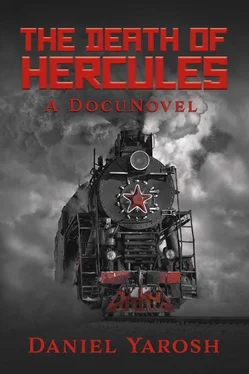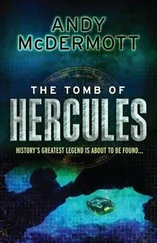Deena narrowed her eyes, now not certain if he was teasing her. “Then what happened?”
“Well, as with the other Messiah,” and Zalmund winked at her, “he fell into trouble with the authorities, this time the Ottomans. Again, he was betrayed by one of his own followers. But this time the Sultan offered him a choice. He could be put to death or convert to Islam.”
“What did he do?” Deena asked, now completely enthralled.
“Oh, he converted to Islam and lived another ten years.”
“No!” Deena exclaimed.
“Yes, and his children moved to Thessalonica,” Zalmund said with a smile. “His descendants may still be there today. I would like to meet them.”
Amused, exasperated, and maybe a little in love, Deena returned to her chores in the house.
Saturday afternoons became their time together. With the elderly Witold Kosiński and infirm Miriam Hofitz confined to their rooms and the Jews reliably in synagogue, they strolled the grounds without the town’s prying eyes. They would discuss the household affairs, the needs of the estate, and the vagaries of the various suppliers and workmen now that the war was in its second year. Supplies of meat and cloth were harder to find, now that the German Army was requisitioning all that it could for the war. Their talks often turned to politics, which Deena enjoyed immensely. No one treated her as an adult nor did they value her opinion, except Zalmund. They discussed the fraying of the aging German empire, the decrepit Tsarist state, and the yearning of the Polish people for a country of their own.
One Saturday afternoon they strolled bundled against the late November wind. Zalmund described his latest reading from the philosopher Friedrich Nietzsche.
“God is dead,” Zalmund said matter-of-factly.
“No, Zalmund. Don’t talk that way,” Deena chided him.
“Yes, God is Dead. All that is left is Nihilism. Nothing matters,” he continued. “That is why we destroy ourselves. Germany against Russia, Austria against France. It is more than a government fighting. It is each nation’s culture at war with the other. All to the death. It doesn’t matter.”
“That is a very sad state of affairs,” Deena replied seriously. “And love doesn’t matter? The love of a man for a woman, a mother for her child? We should just throw that away? I cannot accept that.”
“You are right, Deena my… friend,” Zalmund caught himself. “There is someone who can give us meaning. Nietzsche calls him the Übermensch , the Overman. This great man is not held back by the petty morality of a dead world. He is not bound by culture that enslaves men to a doomed country. He rises above simple notions of good and evil. He takes control of the nation and leads to a better world with freedom and justice.”
“Oh, we need an Übermensch now!” Deena exclaimed, and wrapped herself tighter in her shawl.
“Yes, I think we do,” Zalmund said wistfully. They strolled for a while in contemplation, each enjoying the syncopation of their steps and their hearts.
“So, what happened to Herr Nietzsche?” Deena finally asked.
“Oh, he went crazy and died from a stroke in his mothers house!” Zalmund replied deadpan. After a moment, they both burst into laughter and for the first time clutched each other in joy.
By March 1916, although the battle front was far to the east, the demands of the German war effort began to pinch Poznan and Koszuty. Rationing was instituted even in verdant farmland, and produce was commandeered at minimal prices by the ruling government. Then army conscription was instituted to replace the slaughtered soldiers at the front. The local farmers, who had been sympathetic to the more sophisticated Germans against the primitive Russians, grew resentful. In response, the German government promised greater Polish autonomy after the war. It did little to stem the unease. Isaac Hofitz, in the guise of the now decrepit Witold Kosiński, grandson of a famous Polish patriot, petitioned the government to exempt the young men of Koszuty so they could attend to the estate farmland. Others he helped avoid service by forging documents and misplacing deeds. The reports of German savagery in Polish territory at the front gradually shifted local sympathy to the Russians.
As the war dragged on, Deena turned 17 and her marriage prospects all but dried up. Eligible men were conscripted or in hiding. Farmers were poor and without a dowry for their sons. Deena was an outcast and her father stopped trying. Zalmund, too, had no marriage on his horizon. He withdrew from the Jewish community, attending only the minimal prayers in synagogue and leaving afterward. He fought with his father about marrying. He turned down a reasonable shidduch (marriage proposal) from a tailor’s family in town and refused to meet with the local shadchanit (matchmaker). His father worried about leaving him at home for so long and began to assign him more tasks about the estate.
Zalmund followed the war closely by newspaper accounts. He would walk around the house following Deena and read to her from the dispatches. Deena cherished his attention and drank up every fact from the outside world. The German press was particularly fixated on the decomposing Tsarist family. The corruption of the ruling circle was monumental, they reported. The Russian Imperial Army, commanded by Tsar Nicholas in person, ate caviar while sending their troops to the field armed with sticks and pitchforks. Back at the capital in Petrograd, the German-born Tsarina Alexandra was reported to be under the control of a crazy monk Rasputin. She made decisions based on his bizarre mystical visions and hosted sex orgies for him. Then on December 30, 1916 Russian noblemen, led by the Tsar’s nephew Prince Yussupoff, assassinated Rasputin. Newspapers reported that at first they poisoned him, shot him twice, then had to beat him senseless and throw him from the Petrovsky Bridge into the freezing Neva River to finish the job.
The war continued to go badly for the Russians, which only increased the demands on the Poznan provincials to supply the advancing German Army. Finally, the starving peasants and workers of Petrograd turned on the Tsar’s government, and the Russian Army followed. Nicholas Romanov abdicated the throne on March 15, 1917. Zalmund and Deena speculated on the outcome. Deena hoped the moderate politicians, supported by the Church, would come to their senses and stop the war. She emphasized her points by swatting the pillows extra hard as she made the bed. Zalmund followed behind her, stroking his beard and nodding. But the Socialists, he reminded her, are the ones who want to make peace.
“And the Bolsheviks,” he said slowly, “are led by an Übermensch . Lenin.”
“A real live Übermensch ?” she asked.
“Yes. I see it clearly. He will do anything, stop at nothing, to take over Russia. He is not bound by the same rules as the Republicans. He is building a new morality, a new Russian culture. They cannot defeat him. They are fighting with only one arm.”
“A real Übermensch ,” Deena said softly to herself, mulling it over as she smoothed the sheets. “If he stops the war, I am with him!” she finally said, defiantly.
Germany’s joy at the collapse of the Russian Empire was reversed with the entry of the United States into the War in April 1917. The demands of the German Imperial War Department now shifted to the extreme. Isaac Hofitz could no longer protect the town or the estate, and nearly all young men were conscripted. Summer crops were harvested unripen to conceal them from the authorities. The remaining townspeople were on meager rations. The grim news became foreboding of a black future. People were anxious and snapped at each other. They trudged around the streets with heads held low, stomachs churning with doubt and worry. Even the church bells tolled a little softer and sharper, as if God himself held his breath and waited.
Читать дальше












